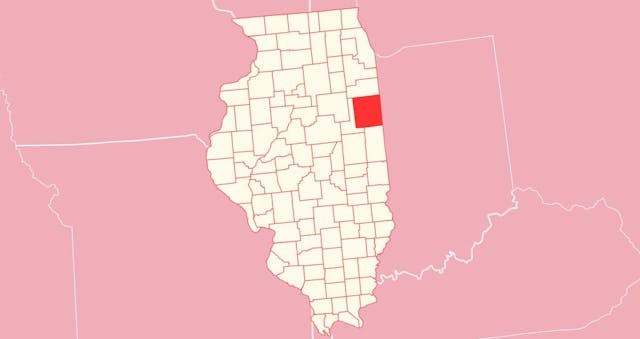Rehabs in Iroquois
Iroquois County is located in the US state of Illinois. The county seat is Watseka. As of the 2020 US census, the region had a population of 27,077.
The rate of drug and alcohol abuse is increasing day by day and affects all spheres of a person’s life. The state of IL feels all the negative effects of this epidemic. According to the report of the National Institute on Drug Abuse, every year, there are more than 75,000 admissions into rehabs in IL.
As for the Institute for Health Metrics and Evaluation (IHME), in 2014, the rate of mental and substance use disorder mortality was 6,6 for women and 14,1 for men (per 100,000 population).
Various Iroquois County rehabs offer quality services to their residents. The province has 272 rehabs within 75 miles of the city midpoint. There are also 61 inpatient and 417 outpatient programs within 100 miles of the city midpoint.
Read the article to get information on the available programs and receive expert care as soon as possible.
Available Treatment Options
Rehabs in Iroquois County provide support to persons and groups trying to bring to life their goal of sobriety. The highly skilled expert staff support their patients to gain skills to keep sobriety and provide counseling to those directly affected by drug and alcohol abuse.
The main available services are:
Detox
Inpatient and Outpatient Care
Aftercare
Besides, they offer individual recovery plans that are to address both addiction and co-occurring mental health issues.
One of the popular rehabs is Iroquois Mental Health Center, which is located at 323 West Mulberry Street, Watseka, IL, 60970. The center has high-quality outpatient healing plans and interventions such as motivational interviewing, cognitive and dialectical behavioral therapies, etc.
Detox
After an initial assessment, a person may start the treatment. Detox is the first step in this procedure. It is the natural process of removing toxins from the body.
Those who are suffering from drug or alcohol addiction may feel painful withdrawal symptoms. Hence, expert care is vital during this stage.
Detox hubs provide 24/7 monitoring and control to their patients. So, they ensure their comfort and safety. To cope with more serious withdrawal symptoms, medical detox also offers medication-assisted therapy.
Inpatient
A person, who enrolls in a residential recovery center, commits to staying at a rehab during the whole period of treatment. The average length of this care is 30 days. However, it may be shorter or longer than 30 days, depending on the unique needs of each patient.
This program includes cognitive behavioral and dialectical therapies, individual, group, and family counseling, sports, art, yoga, etc.
Outpatient
People with time restrictions due to work or school or those with certain daily routines may find outpatient care as an excellent form of recovery. It allows people to live at home rather than take several weeks or months off of work or college.
This plan consists of the same therapeutic options as the inpatient one. However, a person visits the hub two or four times a week for two-hour daily sessions.
Aftercare
The goal of aftercare is to reduce any risk of relapse. Many people are still in need of expert care even after completing a rehab program. So, they can find support within Alcoholics and Narcotics Anonymous groups, SMART recovery groups, sober living houses, etc.
Payment
The high cost of rehab is a real concern for those struggling with addiction. However, several financial means may provide full or partial coverage for the rehab expenses. First of all, people use their private health insurance plans to cover their expenses.
Secondly, there are also public insurance plans such as Medicaid, Medicare, and Tricare. Patients should verify their eligibility with the hub before entering it.
People may also use scholarships, grants, medical loans, and financial aid from their family and friends.

